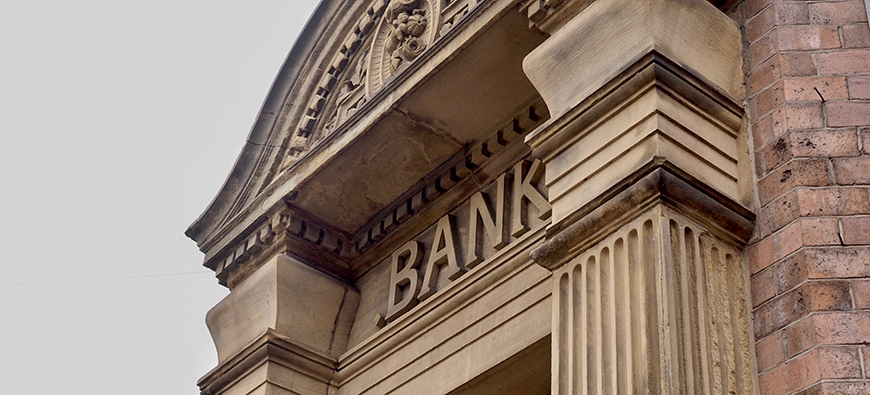
What’s a Bank? History Offers a Guide
For as long as there have been banks, there has been competition from nonbanks that provide some of the same services.
In the early 1980s, E. Gerald Corrigan, a former president of both the Federal Reserve banks in Minneapolis and New York and a managing director at Goldman Sachs & Co., articulated the essential problem in his well-known essay “Are Banks Special?”
Corrigan published his essay in part due to the encroachment of thrift companies, money market mutual funds and insurance companies that wanted to compete with some aspect of commercial banking. The question he posed became more pertinent by the end of the millennium, as the Gramm-Leach-Bliley Act tore down the walls dividing investment banks, securities companies, insurers and commercial banks. That lead to the development of the moneycenter banks and other global financial institutions we know today. But the question of what qualifies as a bank is particularly important as financial technology companies encroach on the space normally reserved for commercial banks and thrifts.
Corrigan attributed the specialness of banks to three distinct characteristics:
- Banks offer transaction accounts.
- Banks are the backup source of liquidity for all other institutions.
- Banks are the transmission belt for monetary policy.
Merely lending, he wrote, did not make a company a bank.
“[T]here is nothing unique or special about the asset side of a banks’ balance sheet,” Corrigan wrote. “Concerns about the nature and risk characteristics of bank assets arise in the context of the unique nature of bank liabilities, the need to preserve the integrity of the deposit-taking function, and the special trusteeship growing out of that function.”
These characteristics do give banks “special and unique functions,” he wrote – in short, that banks are special. The specialness of banks means it does matter which companies get to hold bank charters and the privileges and regulations that entails.
The questions reverberate two decades later, as financial technology companies make in-roads into the financial services space through charter applications and by buying bank charters. It underpinned interviews I conducted for my second-quarter 2021 story in Bank Director magazine. I believe the industry will continue grappling with these questions as more companies eye bank charters: What is a bank, and are banks special?
Below are the answers I gleaned from several financial technology companies that now have bank charters and from Thomas Curry, the former Comptroller of the Currency, who played an instrumental role in laying the groundwork for fintech bank charters. Their answers have been edited for clarity and length.
What’s a bank?
Banking is evolutionary. You don’t want to define banking in a way that doesn’t allow it to expand or adapt to technology. That was the theory behind the OCC’s responsible innovation whitepapers, that banking needs to adapt. That was part of the thinking of why we should provide an opportunity for fintechs to enter into the bank space.
– former Comptroller of the Currency Thomas Curry, a partner at Nutter McClennen & Fish.
A bank used to be a noun – it was a physical place with columns and very ornate lobbies. Now it’s a verb. It’s no longer a physical location as much as a thing you do.
LendingClub is absolutely a bank. But we’re a new type of bank; the business model brings together the benefits of a bank with the benefits of the marketplace’s asset generating capability. In the same way that Airbnb didn’t replicate hotels, they created something new, using the technology as the launch pad to put a whole new spin on the industry.
– Anuj Nayar, chief communications officer for LendingClub Corp., which bought Radius Bancorp and acquired its bank charter
I think the bank of the future should be [a place] where your money really is, you know it is there and it never fails. This is how the public thinks about it: The money is at the bank and the bank is safe. The word “bank” usually implies storage, like a vault. Jiko is a company that offers exactly that: the reality of what people think a bank is.
– Stephane Lintner, CEO and co-founder of Jiko Group, which doesn’t lend and acquired a bank charter in its acquisition of Mid-Central National Bank
Varo is new type of bank, in the sense that our focus is on our purpose: helping the consumer and not trying to make money by charging a lot of fees. So many traditional banks have not focused on the consumer segments that [Varo is] trying to help. Not only are we providing financial services, but we’re doing it in a way that we think supports the dignity and the opportunity of the consumer.
– Maria Gracias, general counsel at Varo Money, which received OCC approval for a de novo bank charter



